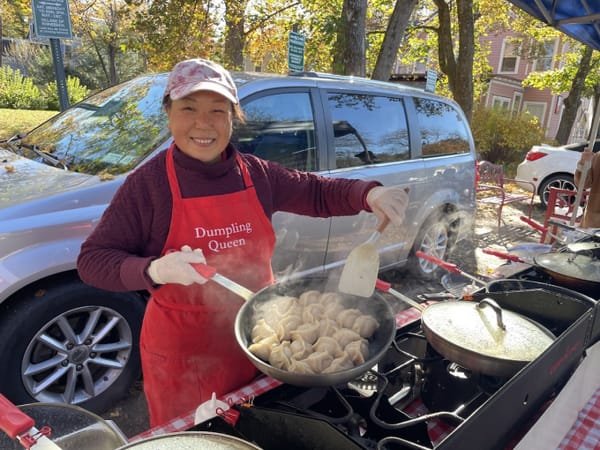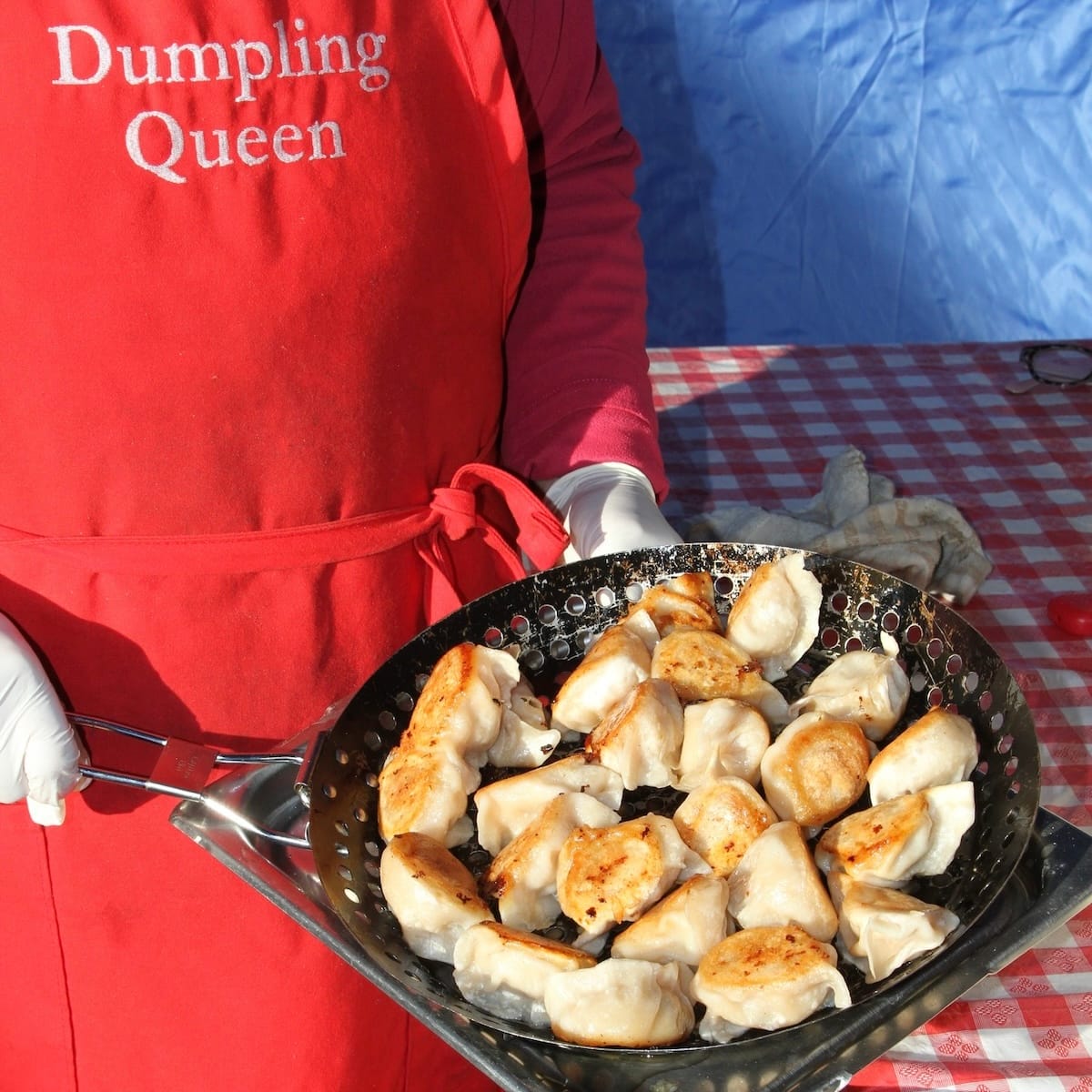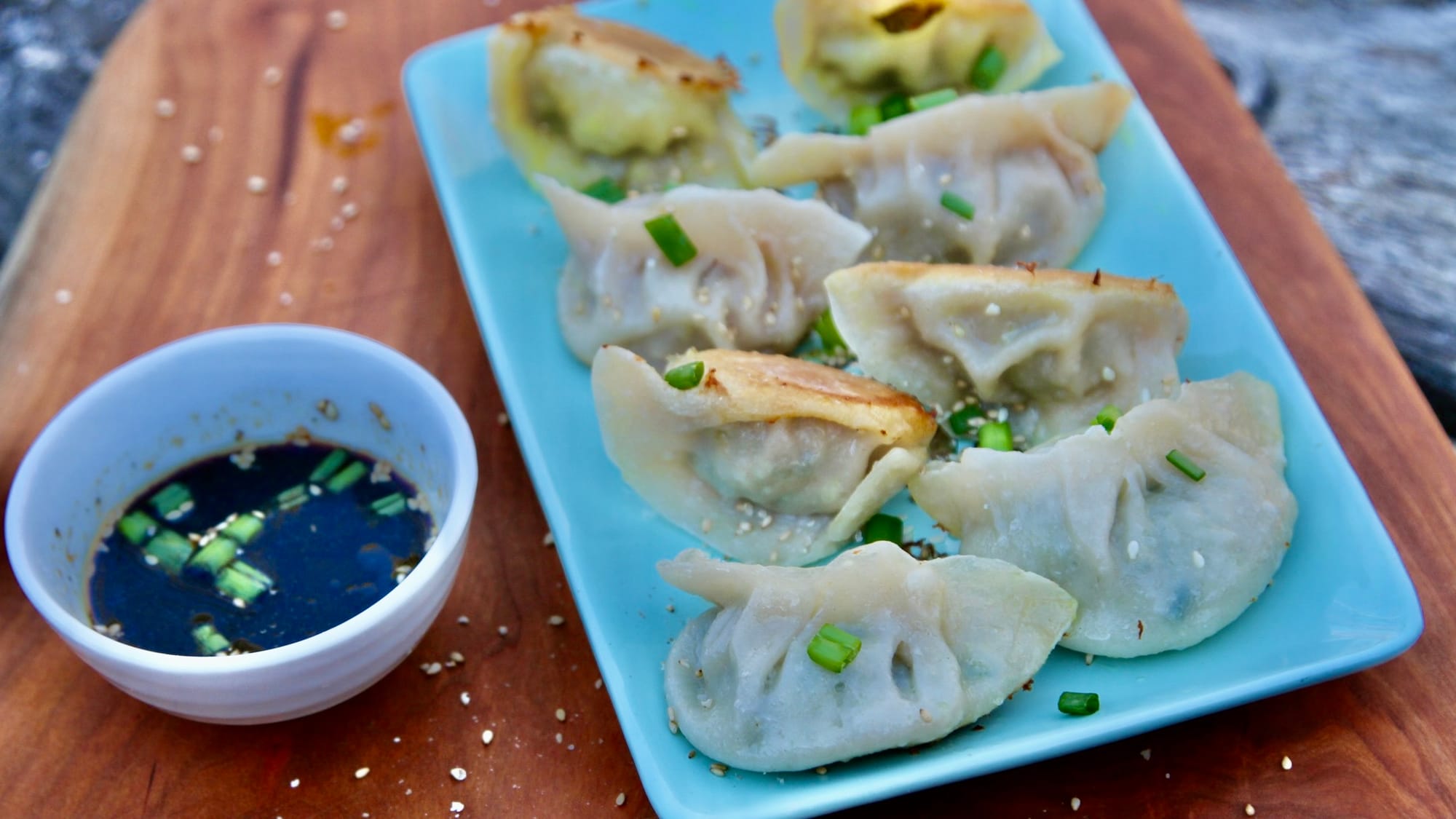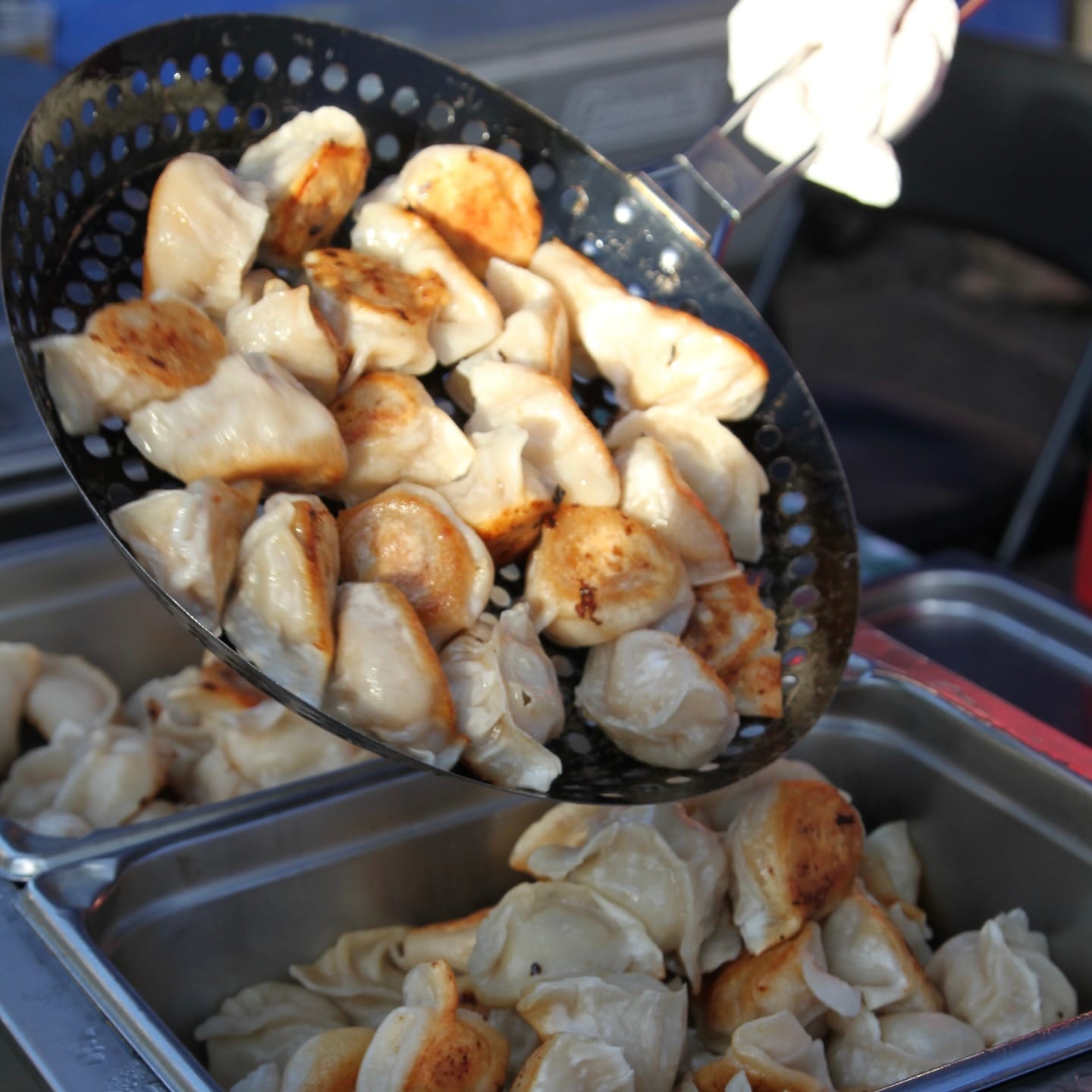Mei’s Dumplings: Handmade Chinese Feeling, Local Farm Filling
Only available at the Rhinebeck and Hudson Farmer's Markets and select pop-ups, the dumplings are now a line-worthy commodity.

Only available at the Rhinebeck and Hudson Farmer's Markets and select pop-ups, the dumplings are now a line-worthy commodity.

On a crisp October morning at the Rhinebeck Farmers’ Market, steam rises from six shallow pans lined up on a long row of portable burners. At the Mei’s Dumplings stand the air is thick with the savory smell of garlic, sesame, meat, and browned dough. Behind the stand Mei George moves with casual precision, flipping, stirring, and plating hundreds of handmade dumplings while her husband, Tony, tends to a steady line of eager customers.
Tony and Mei met decades ago in a Queens park while walking their dogs. Tony, a lifelong New Yorker who worked 30 years as a high-pressure boiler operator for the city, was charmed immediately by Mei, who was working in fashion with her sister. “I met Mei and her daughter there,” he recalls. “Mona [Mei’s daughter] was seven then—she’s 35 now. So, yeah, we go way back.”

After Tony’s retirement, the couple decided to leave the city for the quieter, greener hills of Columbia County. “I knew I didn’t want to stay with those taxes,” he says with a laugh. They bought three acres in Craryville in 2009 and moved north in 2014, building a modular home where they’ve lived ever since. “Here, people are friendly, it’s peaceful,” Mei says between turning dumplings. “In the city, it's busy. Here, I can cook.”
Mei’s culinary instincts were shaped in Qingdao, a coastal city in northern China known for its seafood. “Since five or six years old, I helped make dumplings,” she says. “Every holiday, my family made them together. I learned from my mom. My grandpa owned three restaurants in China. All my uncles are chefs.”

Her local riff on her uncle’s favorite pork dumplings with leek remains her top seller. “In China, we use cabbage, but I use leek. The taste is different. Customers love it.”
What makes Mei’s dumplings craveable isn’t just their delicate texture or balance of flavor, but how seamlessly she’s merged traditional Chinese recipes with the regional farm-forward ethos. “We get our beef from Grimaldi beef farm,” Tony says. “Pork from Grey Light Farm. We trade with Migliorelli every Sunday for vegetables. If we make noodles or wonton soup [$10 per pint], we use bok choy and greens from them.”
The result is a menu that changes week to week. The pork-and-leek dumplings are the mainstay—juicy, fragrant, and wrapped in hand-rolled dough that’s delicate but chewy. There’s also beef and chicken dumplings and a vegetable version, often filled with local greens and mushrooms ($12 for six or $15 for eight). Depending on the week, Mei brings along other dishes like sesame peanut noodles, scallion pancakes, and boa buns (prices vary). “Customers always ask if we use local products,” Tony says. “We try to use as much as we can.”

Mei’s first step into the dumpling business came thanks to a nudge from friends. For six years she worked at a T.J. Maxx in Greenport, where she often brought dumplings to share with coworkers. “They told me, ‘You need to sell these!’” Mei recalls, laughing. Tony helped her take the leap. “He went to Cooper’s Daughter Distillery when they just opened,” she says. “They said people could sell food there. So he said, ‘My wife makes dumplings!’ I made a sample, they tried it, and they loved it.”
That first pop-up (before either Mei or Tony knew what a pop-up was) led to regular appearances at the distillery, and soon after, to a coveted space at the Rhinebeck Farmers’ Market and elsewhere. Mei has throngs of regulars who show up early to secure their weekly portion. It's the kind of food that feels both humble and celebratory, a handmade bridge between a couple and customers from different cultures, between city and country, between an old life and a new one.
For Mei, that bridge is everything. “When I cook, I remember my family,” she says, her voice soft amid the clatter of the market. “My mom, my uncles, my grandpa. I think of them.”
Her husband beams. “She puts her heart in it,” Tony says.